You recently moved to Germany, but don't know how to open a German Bank account? No problem! In this article, we will explain the paperwork behind it and everything else you might need to know.
For example, we will inform you about everything regarding the currency in Germany, and from which Bank Accounts you can pick. Furthermore, what types of Bank Accounts there are and the Institutions you can see for assistance.
For starters, you are required to get German insurance coverage by law. But you don't have to create a German Bank account, although we would highly recommend it. For example, you definitely need some sort of account, if you want to send and receive payments.
Then, you can either choose an international bank account, or a German mobile bank.
Because you need to pay German insurance, or utility bills, in regular intervals.
Germany has a banking system, with three major institutions:
But there are also a lot of mobile-, online, and international banks like:
Because Germany is part of the EUs eurozone, you will need to use euro (EUR) in the country. Which is very practical, as the currency can be used throughout most places in Europe, with only little exceptions.

While you were spending some time in Germany, you may have noticed how many ATMs there are. And thus for a very specific reason, which is Cash (Bargeld). If you want to purchase groceries, or even bigger payments, you might want to have cash with you.
Even though you can pay with your card in many places, you can never be so sure of that in Germany.
So, we would surely recommend you to always have some Coins or banknotes with you. For many people, especially if they moved from America, it can take quite some time getting used to. But soon you will also discover the advantages from paying with cash.
For example, it is easier to see how much you have paid in the day, and if you might need to lower your costs.
In Germany, there are different types of bank accounts, you can pick from. Here you can see a list of the main Types of German Bank accounts and some information on them.
If you are an expat, and reside in Germany, this may be the best option for you. International offshore bank accounts have many nice qualities, you will sure appreciate in the future. If you want to regularly transfer money between countries, or if you spend quite some time in more than one country, it is the option for you.
This type of account is often located outside the holder's country, where you reside. They offer advantages, such as more cross-services, or a lower taxation, which you will like.
The Commerzbank, or Deutsche Bank are solid examples, as they are protected and dependable.
Germans love to save money. Which is also the reason, why this type of bank account is so currently used. They can be used for set deposit (Festgeldkonto), or also for instantaneous access (Tagesgeldkonto). The latter meaning an account with minimum deposit and higher interest, as well as a fixed time, where the money has to stay in the account.
However, the savings account is not recommendable to invest your money. The interest rate is quite low and definitely below inflation level. You can use this account to store money you need in the close future or just for emergencies (like washing machine broke down, etc.) To save money long term, you have different options like stock market investment or real estate. At CRCIE we offer comprehensive pension planning advice.
These types of bank accounts are the most commonly used type in Germany. For students and young people, there are specialized accounts, as well as general accounts for everyone. Such accounts are mainly used for paying different bills and receiving wage.
If you work in Germany as an Expat you will need such an account.
Probalby all German banks offer a digital / mobile current account. They can be very useful, especially if you want to make payments from home. You may choose an app, or use the website, if you wish to receive money or make payments.
As the name indicates, these accounts are also available for people planning to move abroad, or who work in Germany. The other current accounts are mostly only usable for German residents, so this option could especially be helpful, if you are (not yet) a German resident.
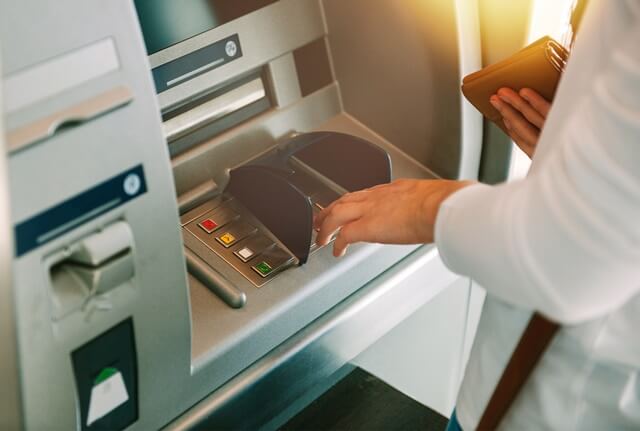
Before you open your first Bank Account in Germany, you need to decide which option is most suitable for your needs. With this list of factors, it might be easier to pick the best choice for you.
Foremost, you have to look for the non-resident account availability. Especially if you want to open a bank account before moving to the country, you need to select either an international bank or a “Direktbank”.
If you need some English-speaking assistance, this factor is significant for you. Mobile banks and international banks have no problem offering you these English-speaking-services, if you have any questions or problems, you might need to solve.
When it comes to choosing the right bank to work with, you need to keep an eye on good customer support. Part of that can be, how fast the support responds and how the quality of the support presents itself. Please be careful of this factor, as it is one of the most essential ones.
Another undoubtedly substantial factor is to search for banks with High-quality banking services. Be sure to gather enough information about the services at hand, before making your final decision.
While fees may not seem to be such an important factor at first glance, as they can be seen as generally quite low for one payment, they can sure add up over some time. If you want to prevent high fee cost, a small difference in fees can go a long way.
If you would like to select a suitable bank, online services are getting more and more significant by the day. Paying and receiving payments can be extremely convenient if you can do it from home as well.
If you want to have cash on your hands at all times, as it is definitely recommended in Germany, you should look for banks, that have a wide network of ATMs and branches. Searching for them is effortless, you just need to search the web, and you will find all ATMs, you can use.
General information |
ATM availability and fees |
Monthly costs (basic accounts) plus credit card information |
Deutsche Bank |
||
One of the largest nationwide banks, the Deutsche Bank is extremely often referred to, also internationally. If you are a student, this bank can be seen as very practical because it offers many services, which are customized to your needs. Transfer of money can also be easier, as they have a partnership with the Bank of America. |
You can use all ATMs from the Cash Group, which is Commerzbank, Deutsche Bank, Postbank, and Hypovereinsbank for free. There is a withdrawal fee of 6 Euro or 1 Percent on other ATMs. |
There is also no monthly fee for young people. (to the age of 30) |
This bank is exceptional because it covers environmental factors, and uses your money for actions you can choose from, part of that can be investing in education and culture, as well as social and health concerns for example. It offers numerous mobile services too. |
You can use all ATMs of the Volks- and Raiffaisenbanks, many of the Sparda-Banks and of course the GLS Bank for free. |
For young people there is no monthly fee, if you are over 27 years old, you have to pay 3,80 EUR a month. |
Sparkasse |
||
Banks, such as these, are run as non-profit public services, and they do have a big diversity in service. You can also choose from a variety of network branches and ATMs in the whole country, which makes your money much less difficult to access. |
You can use ATMs from the “Sparkassengruppe” for free. |
There is an account for young people of the age 11 to 17 years, where you dont have to pay monthly fees. If you are over that age, you need to pay 2,95 EUR. The credit card costs 3 EUR per month. |
Hypovereinsbank |
||
This institution is known as the fifth-largest bank in Germany, but only available in German, so it might not be recommended for English-speaking folks. |
You can use all ATMs from the Cash Group and the Hypovereinsbank for free. |
Account for young people to the age of 26 is free. |
Commerzbank |
||
The Commerzbank is part of one of the largest banks that are currently available in Germany. That is also why there are so many ATMs options to decide from, as well a high-quality customer service and a site specified for English-speaking people. |
You can use all ATMS from the Cash Group for free. |
The credit card costs 39,90 EUR per year. |
N26 |
||
This modern bank has a great app and support in English, Spanish, French, Italian, and German |
Depending on your card and type of account, the amount of free withdrawals you can do varies. (All ATMs) Over the decided amount, you need to pay a fee of 2 EUR. |
You can get a free account with several useful features. The Mastercard is also free if you get the basic one. |
DKB |
||
The DKB Bank is known as one of the most popular online banks, there are in Germany. |
You can use all ATMs with a VISA-logo for free. (With the DKB-Visa-Card) |
You can get a free account with several useful features. |
In Germany, there are several documents, which you need to send, before you can open your account. They differ depending on which bank you have selected and what type of account you want.
Here is a list of the documents you must submit, if you want to open a German Bank account:
Especially if you just moved to Germany and are not from the EU, you should pay extra attention to showing your financial history.
Opening a bank account in Germany does not need to take a lot of time, generally it needs about 2 to 3 working days.
If you want to open a German Online Bank account, you are required to verify your identity. Most commonly used methods are PostIdent, an email code, or using a webcam.
If you have to use PostIdent to verify yourself, you need to download a verification sheet, from the bank and show it at a post office. You also need to bring your passport. Then they will sign your documents, and they will be sent to the bank of your choice.
A good amount of organization and planning are involved when moving to another country, especially to Germany. That's why, we compiled this, easy-to-follow, ultimate checklist for moving to Germany to ease your transition and integration there as fast as possible.
For many international workers, Germany has become an appealing destination to work. Germany's tech industry is booming, and if you have the skills to fill one of the many open positions, you might want to consider moving there. Fortunately, relocation is becoming routine, and Germany, mainly, is well-known for welcoming foreigners.
The legal criteria for residing in Germany may vary depending on your nationality, the reason for your income, and more. It is pretty simple for EU residents and their family members to get legal residency in Germany. For non-EU citizens, though, things can get a lot more complicated.
The steps for relocating will be the same regardless of your job. Everything covered in this tutorial will apply irrespective of which company you choose to deal with.
Applying for a work permit and a visa, which will allow you to enter Germany as a contributing and employed part of society, is perhaps the most significant step before relocating to Germany. Often, the company that hires you will offer help with this phase.
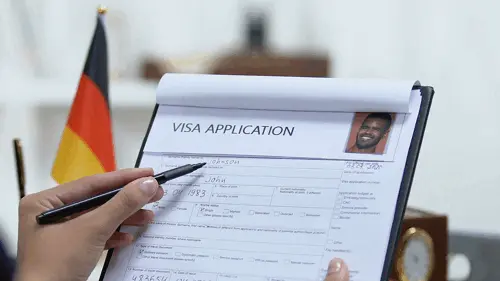
A work visa is not required for every foreigner who wishes to work in Germany. Nationals of the EU, non-EU, and Switzerland, for example, have different requirements than nationals of other third nations. The following section reveals more details.
You do not need a visa or a work permit to work in Germany if you are a European Union citizen. You have the freedom to travel and work. All you'll need is your identification or passport. There is also no need for a work permit. If you want to remain for an extended time, the only thing you need to do is register your stay.
In most cases, you'll apply for a work permit simultaneously as your travel visa. Typically, you will undertake this process from afar by visiting the nearest German Embassy or Consulate to apply in person. However, if you are from a few countries (such as the United States or Canada), you can submit your application from within Germany.
In Germany, there are various sorts of residence and work licenses. To apply for this type of permission, you must meet the following requirements:
You can also apply for an EU Blue Card.
The EU Blue Card is a certificate that proves a third-country national's legal residence in the EU for gainful employment. It allows foreigners with an academic or equivalent qualification to work in Germany as non-self-employed workers, provided they have better professional credentials.
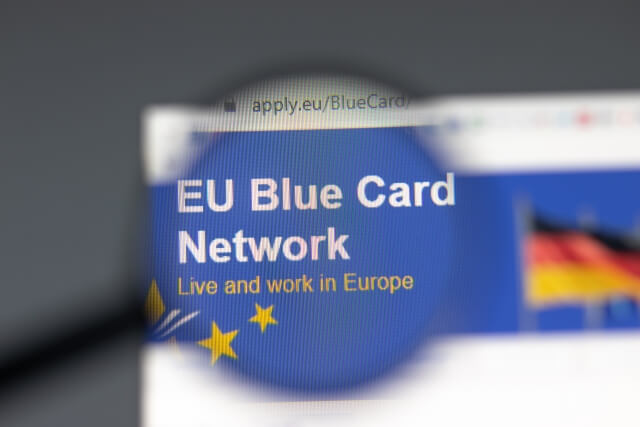
Credentials such as a university degree and a binding job offer with a higher income than the average in the EU nation where the job is located, making it easier to enter the German labor market.
In addition to being a non-EU citizen and a competent worker, it would be advantageous if you matched the following criteria:
The following is the procedure for applying in person at your local embassy:
Your nation of origin will influence what you need to supply and how long you'll have to wait.
Every country has its educational standards, and not all certificates acquired in your native country will be automatically recognized in Germany.
Certain professions, such as doctors and lawyers, demand the recognition of credentials earned. This is also true if you want to apply for an EU Blue Card.
To begin with, determine whether the university where you studied is recognized in Germany. It must be classified as H+ on Cabin. If the university where you studied does not appear on the list or is rated H-, you can submit a request for re-recognition to ZAB, the German authority in charge of this process. Please remember that it will be at your own expense.
It isn't easy to go to Germany without a university degree if you are a non-EU citizen.
You can apply if you have at least five years of professional experience. You can apply for the EU Blue Card (equivalent to a German higher education qualification).
You can try to obtain a degree from one of Germany's recognized universities and then apply for an EU Blue Card.

If all goes well, you'll be eligible to apply for a specialist professional residency permit.
You can quickly move to Germany without a university degree if you are a legal citizen of an EU member state and do not require a work permit.
Once you've finished making all the essential preparations, the next item on your to-do list is to find housing near your new workplace.
When looking for a rental flat in Germany, you usually don't have to pay estate agent fees because they are the person's responsibility.
Due to increasing demand and rising costs, finding a flat in Germany's cities is difficult. However, the most pressing issue for you as a foreigner relocating to Germany is the issue of paperwork!
To formally rent an apartment, you must have a bank account, but to get one, you must first prove your registration (your actual address in Germany). This is an important consideration to make before moving to Germany.
Hiring an agent to help you discover a house might ease the burden of searching for a home on your own, but it comes at a cost.
Your workplace is likely to offer you some assistance with this aspect of the transition. While looking for a long-term housing option, some firms provide temporary accommodation.
After moving to Germany, one of the most important things, you should register your address with your local authority (Bürgeramt or Einwohnermeldeamt). Within the first two weeks of settling in, you must bring your identification document and rental contract and register your address.

This is something that the Germans take very seriously. Anmeldebescheinigung (Registration Certificate) is a crucial document. It is required for practically all formal transactions, such as opening a bank account, obtaining a residence permit, and looking for work.
Depending on your local authorities, you may have to wait a long time to register your address. you may have to wait three hours at most. The Berlin office was constantly crowded.
Knowing how you'll carry your stuff to your new house in Germany is critical if you're preparing to relocate there. Because this may be a complex procedure, many expats hire relocation consultants to assist them. There are a variety of solutions accessible, ranging from full-service relocation brokers to digital logistics platforms, allowing you to assess the international shipping market quickly.
Relocation professionals can assist you with every aspect of your relocation to Germany, from packing your stuff to locating the ideal new residence. On the other hand, some expats opt to use a worldwide logistics business to transport their things to Germany.
You may be considering getting a driver's license once you've moved into your new house. Some parts of your citizenship will be restricted as an expat; however, you can apply for a driver's license.
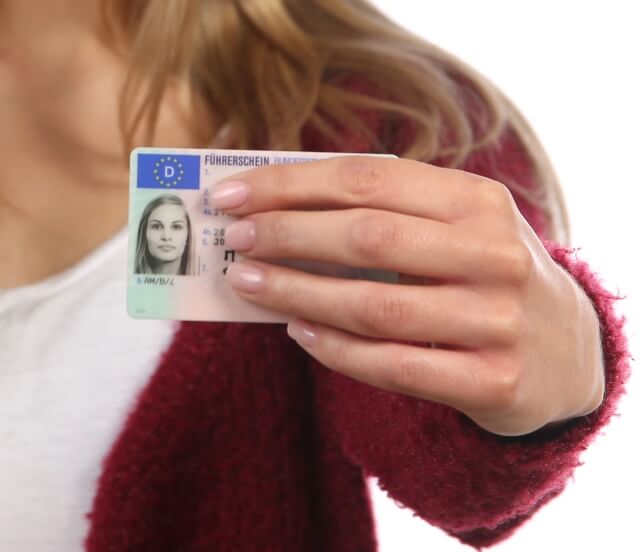
Are you from the United States or Europe? You've hit the jackpot. This implies that if you bring your US driver's license and a few additional documents to a local office in Germany, you will be issued a German driver's license without testing.
You will now have "partial reciprocity" in Germany if you arrive from another ten states (plus Washington, DC). This means you'll only need to pass the German written exam to earn your driver's license, Keep in mind, though, that it is much more. challenging than the regular US written exam.
If you are from a non-EU country, you will have to start from the beginning. After six months, you'll have to attend a German traffic school, which might cost €1,500 (or more) and require 20 to 40 hours of instruction. With that in mind, public transit may be sounding increasingly appealing!
Public transportation in Germany is at the moment not free; therefore, if you do not have a driver's license and solely wish to travel by public transit, you will need to subscribe to one of the public transport services.
In some cities, this will not be necessary (or recommended), as public transportation may be the most efficient mode of mobility. Germany has incredibly efficient public transit systems that operate 24 hours a day, seven days a week, in almost every part of the city where you will be staying.
However, the government is exploring making it so as a means of combating air pollution. However, it is substantially subsidized, and the U-Bahn, S-Bahn, trams, and buses in large cities are pretty inexpensive compared to London, Paris, and Zurich.
The public transportation systems in most German cities and municipalities are well-functioning. Larger cities like Berlin, Hamburg, and Munich, are typically operated by a transportation association that combines several modes of public transit into a single network.
One of the first things that you need to do when moving to Germany is to open a German bank account.
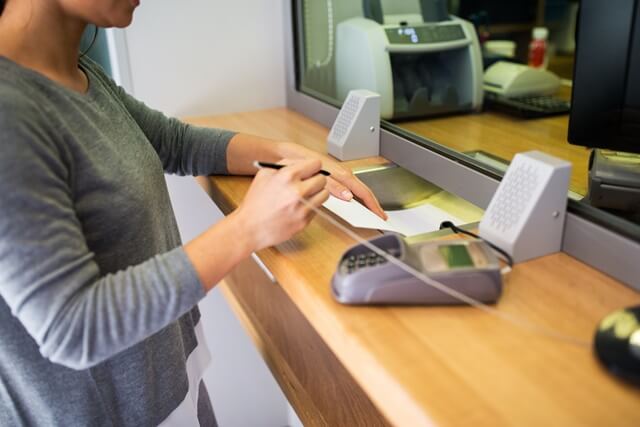
Most businesses, restaurants and shops are taking cards as a payment, but you’ll have to consider that cash was king in Germany not long ago, so you’ll have to have a Germany Bank account to withdraw money. A German bank account is also needed when registering your address at the town hall.
The Euro is used in Germany, as it is in many other European nations. However, unlike other European countries, the Germans frequently prefer to use the old-fashioned way - with cash!
So make sure you have a German credit or debit card and not to run out of cash in most circumstances.
True, English will get you across Germany almost nearly without issues. However, learning German is required if you plan to remain in Germany for a lengthy time. Even though many Germans understand English, you will need to utilize German in many official situations, such as interacting with the government, banks, and insurance companies.
My advice is to learn as much German as possible before traveling to Germany and continue learning it.
Once you are in Germany, you can enroll in German classes and take advantage of any possibilities to converse in German. Unfortunately, many individuals find German to be a complex language to learn.
You should begin studying German as soon as possible, even if you have not yet moved to Germany. You can, for example, use an app like Duolingo or Babel to strengthen your German skills.
When migrating to a new nation, one of the essential issues is insurance. When it comes to insurance in Germany, you'll need to consider what sorts of coverage you'll need and search around for the lowest prices.

Germans are known for taking insurance very seriously. There are several sorts of insurance available. to cover almost any risk you can think of. As a result, determining how much insurance to purchase might be challenging for newcomers to the nation.
Shopping around for German insurance is essential. You'll discover the best option for your specific circumstance in that scenario. There are several insurance companies to pick from, each with its own set of benefits.
In Germany, some necessary insurances are:
Having health insurance is a requirement for residing in Germany, including the visa application procedure whether you're on a Working Holiday Visa, a Freelance Visa, or a Working Visa.
Germany is well-known for its excellent health system and a high percentage of insured citizens. In reality, all German citizens, even self-employed persons, and students, are required by law to carry health insurance, and you cannot obtain a residence card without it. If you're moving to Germany, it's one of the first things you should check into.
There are two types of health insurance systems: public and private. The first is public health insurance, which covers most of Germany's covered citizens if you're an employee with a low gross income. In contrast, Private health insurance, on the other hand, is only available as a primary kind of insurance if your gross income is higher.
Private insurance is frequently more costly than public insurance, and it does not cover your entire family. Your plan's cost is determined by your risk profile rather than your income. Older individuals, for example, tend to pay more prices than younger people.
Lastly, you must obtain German health insurance to stay in Germany longer than three months. However, different criteria and restrictions apply to travel for tourists and expatriates in Germany, depending on the individual's purpose of visit, duration of stay, or citizenship nation.
Not many insurances in Germany are offering support or translations in English, and some workers (for example, freelancers) have even fewer alternatives for health insurance. That’s the part where our Cr&Cie team come into your help by making your movement to Germany as smooth as possible without too many hassles.